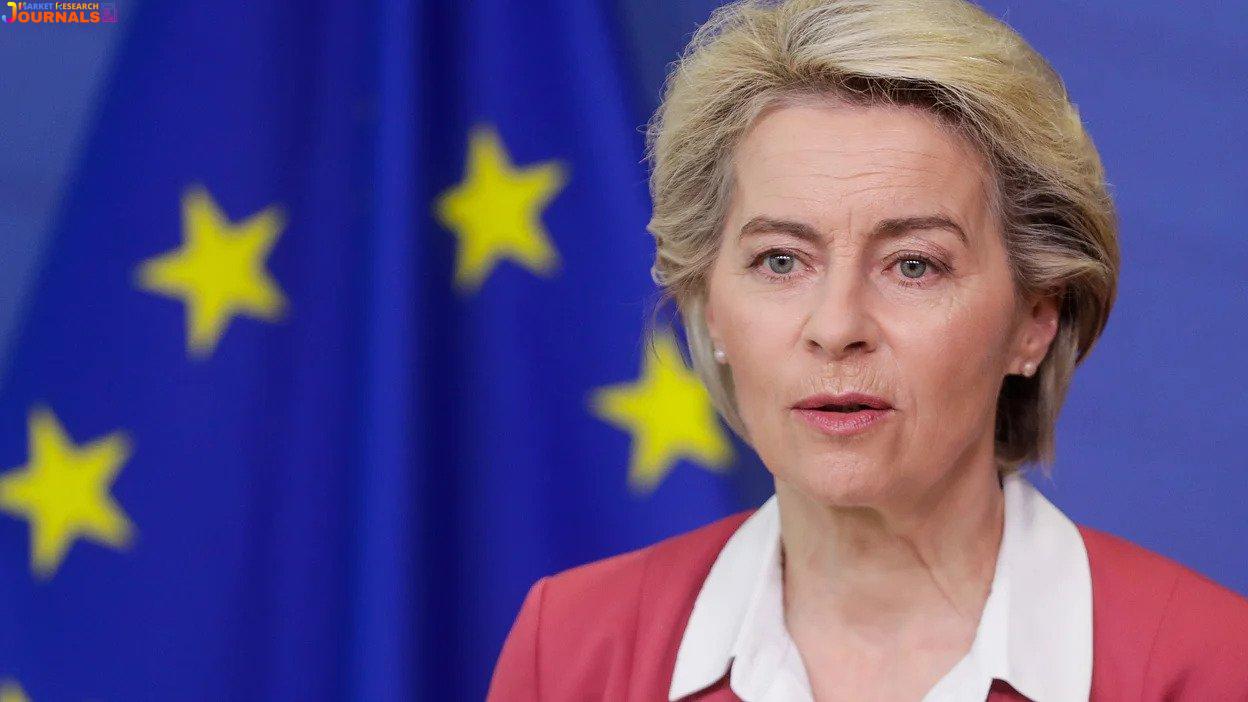The European Union Proposed a Gradual Ban: The European Commission proposed a gradual ban on Russian oil imports on Wednesday to punish Moscow for its invasion of Ukraine, as Russian forces pounded sites in the country’s east and hit targets near the far west the EU border.
What is the ban?
The EU also promised to “significantly increase” its support for Moldova, Ukraine’s neighbor, which has seen a series of attacks in a Moscow-backed separatist region, raising fears that it will be drawn into the conflict after The European Union Proposed a Gradual Ban.
The European Commission’s chief, Ursula von der Leyen, announced that the EU would “phase out Russian crude oil supply within six months, and refined products by the end of the year.”

If approved, the The European Union Proposed a Gradual Ban oil ban would be the EU’s toughest move yet against Russia’s strategic energy sector, which helps the Kremlin finance its war, but it would not affect Russia’s massive gas exports. The issue The European Union Proposed a Gradual Ban on Russian oil import will for sure not be taken for granted by Russia.
Reasons behind the ban
European Commission President Ursula von der Leyen announced on Wednesday that European Union proposed a gradual ban on Russian oil in retaliation for the Ukraine conflict.
“We will ensure that we phase out Russian oil in an orderly fashion,” von der Leyen said in a speech to the European Parliament in Strasbourg as she presented the sixth package of sanctions against Moscow to deny funding to the war effort against Ukraine. Resukting to The European Union Proposed a Gradual Ban action.
Also Read: Chinese warships pass between Japan: Are we seeing a new potential war?
Thus, European Union proposed a gradual ban on Russian oil.
Von der Leyen also stated that the EU would request that the bloc’s 27 member states deny Sberbank, Russia’s largest bank, access to SWIFT, the global banking communications system.
The implementation of the ban
Hungary and Slovakia, both of which rely heavily on Russian oil, would be given more time to comply with the European Union proposed a gradual ban proposed plan, which would require unanimous approval before going into effect.
European Union proposed a gradual ban new sanctions also target Russia’s largest bank, Sberbank, and Patriarch Kirill, the head of the Russian Orthodox Church.
Ambassadors from the 27 European Union countries will meet on Wednesday to evaluate European Union proposed a gradual ban plan, which will require unanimous approval before going into effect.

Von der Leyen also stated that the EU would request that member states agree to deny Sberbank, Russia’s largest bank, access to SWIFT, the global banking communications system. Resulting, European Union proposed a gradual ban.
By targeting Sberbank and two other banks, “we hit banks that are systemically critical to the Russian financial system and Putin’s ability to wage destruction,” she explained.
The draft of European Union proposed a gradual ban also stated that the EU was looking to add the head of the Russian Orthodox Church, Patriarch Kirill, to the latest list of sanctioned individuals in the package.
The new list includes 58 people, including many Russian military personnel, as well as the wife, daughter, and son of Kremlin spokesman Dmitry Peskov.
Von der Leyen stated that the list would include high-ranking military officers and other individuals “who committed war crimes in Bucha and are responsible for the inhuman siege of Mariupol.”
“This sends another important signal to all perpetrators of the Kremlin’s war: We know who you are, and you will be held accountable,” von der Leyen said.
Russia’s reaction to the ban
The European Commission has proposed the toughest sanctions against Russia yet, including a phased oil embargo, as part of a sixth round of retaliatory measures in response to Moscow’s invasion of Ukraine.
Also Read: Putin says Ukraine does not want mutually acceptable solutions Over Important talks in Ending War
A top Russian official has warned that the European Union proposed a gradual ban on Russian oil imports can cause oil prices to more than double to around $300 per barrel and force the closure of Russia’s main gas pipeline to Germany.

Moreover, Russian Deputy Prime Minister Alexander Novak said on state television on Monday that it was “absolutely clear” that rejecting Russian oil would have “catastrophic consequences for the global market.”
Following its assault on Ukraine, Western countries have hit Moscow with a wall of sanctions, with Washington sanctioning technology exports to Russian refineries as well as the Nord Stream 2 pipeline, which was to transport gas from Russia to Germany and just recently, European Union proposed a gradual ban.
Berlin, which is heavily reliant on Russian crude oil, has also halted the pipeline’s certification.
Thus, The European Union Proposed a Gradual Ban for Russian oil imports.







